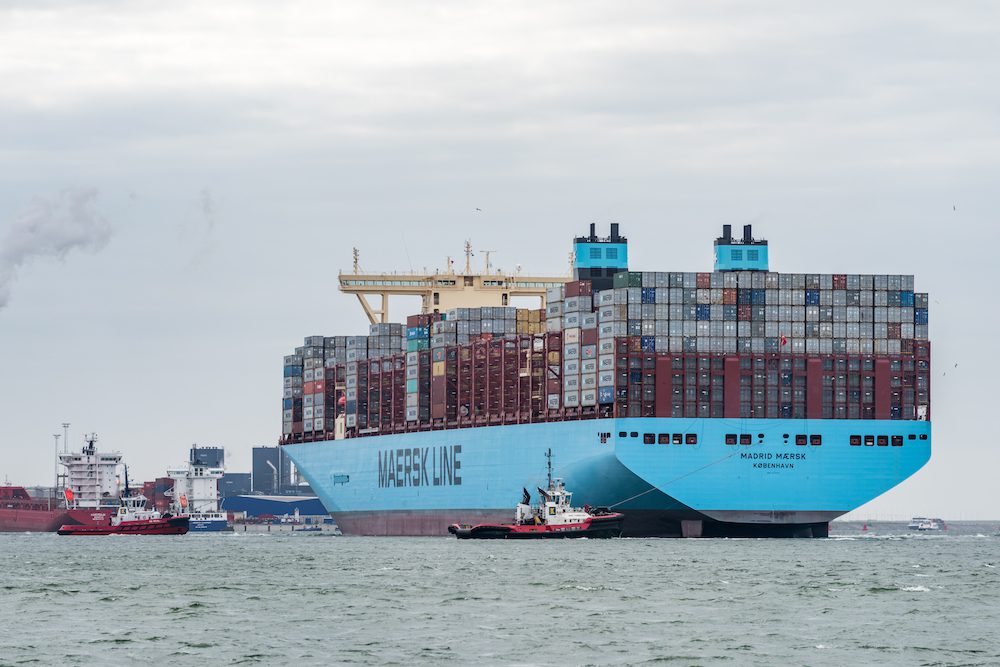Photo: Corine van Kapel / Shutterstock.com

By Jim Finkle and Eric Auchard TORONTO/FRANKFURT, Aug 2 (Reuters) – The cyber attack that crippled Ukraine businesses and spread worldwide to shut down shipping ports, factories and businesses has taken a costly toll on the results of major U.S. and European companies in the latest quarter, with more to come.
Cadbury chocolate maker Mondelez and freight logistics company FedEx Corp are among five multinational firms, three from the United States and two in Europe, to report material financial damage in the closing days of the second quarter from the cyber “worm” known as NotPetya.
Mondelez International Inc, the world’s second-largest confectionary company, reported a 5 percent drop in quarterly sales on Wednesday, blaming shipping and invoicing delays caused by the attack on computer networks that started on June 27.
Seven more major international companies, five based in Europe and two in Russia, which acknowledged they suffered disruption, are only due to report quarterly profits later in August.
Investors should get used to hearing about cyber attacks during earnings calls, said Ian Winer, equity co-head at Wedbush Securities.
“The trend is accelerating,” Winer said. “As hackers get more sophisticated they are taking shots at major companies.”
More hackers are becoming adept at developing or finding malware to wipe data on computers, making them inoperable.
Danish shipping company AP Moller-Maersk S/A, which handles one out of seven containers shipped globally, said a cyber attack had caused outages at its computer systems across the world. On July 20 Maersk said its operations had been significantly affected but lost none of its corporate data to third parties.
“We anticipate a limited impact from the cyber attack (estimates range from $50m to $450m) as it started towards the end of 2Q17,” Jefferies analyst David Kerstens said in a note to clients. Analysts, on average, estimate the hit to Maersk results in a range from $100-$200 million.
Maersk declined to comment and said it will address the impact on Aug. 16, when it reports its second-quarter results.
Three German companies were also caught short in the attack.
German consumer products maker Beiersdorf AG, makers of Nivea skin cream, is set to report on Aug. 3. Indian employees told Reuters its computer and communications systems were infected on the day of the attack.
The company later acknowledged its systems were knocked out worldwide, but have yet to quantify the damage.
German mail and logistics firm Deutsche Post DHL Group and retailer Metro AG also said their Ukrainian operations were infected, but have provided no further details. Deutsche Post reports results on Aug. 8 and Metro Group is expected to report results later in August.
Other NotPetya victims include Merck & Co Inc, which last week warned that NotPetya had halted production of some drugs, saying it has yet to understand the full costs associated with the attack.
The attack slowed deliveries at FedEx and halted production lines at British consumer goods maker Reckitt Benckiser, according to accounts by those companies. FedEx said the NotPetya attack would have a “material” effect on its full-year results.
GROWING RISK FACTORS
Jake Dollarhide, head of Longbow Asset Management in Tulsa, Oklahoma, which manages $85 million in assets, said he expects cyber attacks to become as common as reports that a storm or oil prices hurt results.
Cyence, a firm that helps insurers measure cyber risk, estimated that economic costs from NotPetya would total $850 million.
Major global cyber attacks have the potential to cause economic losses on par with catastrophic natural disasters such as U.S. Superstorm Sandy in 2012, Cyence and Lloyd’s of London Ltd said in a joint report in July. Average economic losses caused by such disruptions could range from $4.6 billion to $121 billion, the report said.
One mysterious group known as The Shadow Brokers in April dumped a trove of powerful hacking tools on the Internet, which security experts said were developed by the U.S. National Security Agency. Code the group released was used for spreading NotPetya and in the “WannaCry” attack in May on hospitals, businesses and governments worldwide.
“As stock market investors we have to accept this brand new reality in this new digital age,” Longbow’s Dollarhide said.
NotPetya is a destructive self-propagating “worm” capable of spreading quickly across computer networks, crippling computers by encrypting hard drives so that machines cannot run.
It has taken companies weeks to get factories and other critical systems back online because businesses must individually replace damaged hard drives.
Most businesses are inadequately protected from cyber attacks, said Tom Kellermann, chief executive of investment firm Strategic Cyber Ventures.
“The day of reckoning has come for shareholders,” Kellermann said.
(Reporting by Jim Finkle in Toronto, Eric Auchard and Victoria Bryan in Frankfurt, Jacob Gronholt-Pederson in Copenhagen; editing by Grant McCool)
(c) Copyright Thomson Reuters 2017.

 Join The Club
Join The Club











